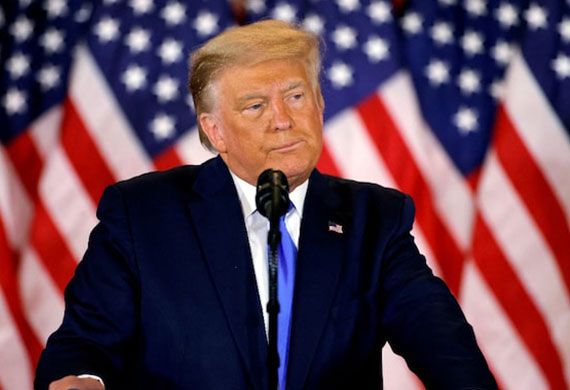Donald Trump, President, U.S
By Global Leaders Insights Team

Since beginning his presidency on January 20, 2025, President Donald Trump has pushed for a trade war by putting tariffs on countries he believes have an unfair advantage in trade. By using these policies, he tries to support American employees, cut down on the trade deficit, and increase domestic manufacturing, in line with his "America First" promise. In Trump’s opinion, applying tariffs will convince trading partners such as China, Mexico, and Canada to trade more fairly, as he sees them charging high tariffs and manipulating currencies to take advantage of the U.S.
Trump began implementing trade policy by applying a 10 percent tariff to all imports which went up to 25 percent for items from Mexico and Canada. He has described these actions as solutions to the unsustainable issue of the U.S. having a $1.2 trillion trade deficit in 2024. In efforts to preserve U.S. industry, his administration set 25 percent taxes on foreign cars and added 50 percent tariffs on imported steel and aluminum. Trump proposes these policies will provide more jobs and help America become wealthy once more, according to his belief that tariffs helped to do so before income taxes were created.
Still, people have criticized Trump’s approach. Many experts warn that tariffs have increased everyday prices for consumers by $2,237-$2,800, contributing to inflation and possibly leading to recession. China’s GDP grew by 5.4 percent in Q1 2025 which shows the trade war is having less impact on its economy than anticipated. According to Trump’s advisers, including Treasury Secretary Scott Bessent, tariffs serve to drive negotiations and are only temporary, using as an example the May 2025 deal between the U.S. and China.
Although many have criticized his trade policies, Trump stands firm, saying there is no issue with escalation and highlighting the connections he has with leaders like Xi Jinping of China. He thinks reciprocal tariffs will even things out for American businesses in the global market. Critics believe that by challenging globalism, the U.S. runs the risk of becoming more isolated and suffering supply chain disruptions with results that are still being felt.
.jpg)